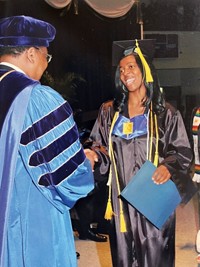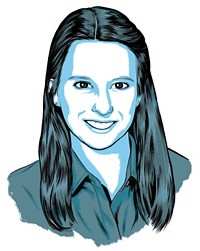Advertisement
Grab your lab coat. Let's get started
Welcome!
Welcome!
Create an account below to get 6 C&EN articles per month, receive newsletters and more - all free.
It seems this is your first time logging in online. Please enter the following information to continue.
As an ACS member you automatically get access to this site. All we need is few more details to create your reading experience.
Not you? Sign in with a different account.
Not you? Sign in with a different account.
ERROR 1
ERROR 1
ERROR 2
ERROR 2
ERROR 2
ERROR 2
ERROR 2
Password and Confirm password must match.
If you have an ACS member number, please enter it here so we can link this account to your membership. (optional)
ERROR 2
ACS values your privacy. By submitting your information, you are gaining access to C&EN and subscribing to our weekly newsletter. We use the information you provide to make your reading experience better, and we will never sell your data to third party members.
Profiles
Career Ladder
Career Ladder: Raluca Ellis
This chemist turned museum programmer is inspiring the next generation of scientists
by Samantha Jones
February 3, 2019
| A version of this story appeared in
Volume 97, Issue 5

1990
An early appreciation for the lab
As the daughter of a chemical engineer mother and computer scientist father, some might say Raluca Ellis was born to be a scientist. Over summer breaks, during her early childhood in Romania, Ellis relished time spent doing math problem sets with her dad. “There was something so satisfying about solving a puzzle or a problem,” she says. Her mother’s laboratory was close to Ellis’s school, so starting around age six she would head there at the end of the school day. As she did her homework, surrounded by “fun, quirky” glassware, Ellis was captivated. “It felt kind of magical, like a different world,” she says. At eight years old, Ellis moved with her family to Ontario. Some of her earliest memories of Canada are free family nights at the Ontario Science Centre, an opportunity for which she is still grateful.
2001
The aha moment
Ellis’s love of chemistry was not instantaneous. She found her high school chemistry class frustrating—until her mom stepped in. “My mom said, ‘OK, let me show you something’ and pulled out the periodic table. She told me that everything we know about the universe is laid out right there. This knowledge completely changed things for me.” Throughout college and into her PhD, Ellis carried around a wallet-sized periodic table everywhere she went.
2011
Finding science communication

Ellis began working toward a PhD in chemistry at the University of Toronto. Although she enjoyed her atmospheric chemistry-focused research, she began gravitating toward science communication. “I liked doing science, but the part I liked the most was talking about the science,” Ellis says. “Chatting with family and friends about my work was so energizing.” Ellis started to crave these more personal ways of sharing her passion for science. “I loved seeing someone go through that aha moment,” she says. As a graduate student, she facilitated Girls Rock Science, a workshop series focused on getting girls interested in science careers. She was also the coordinator for an event called Science Rendezvous, planning and designing interactive science experiences for the public.
Today
Coming full circle

After getting her PhD in 2011, Ellis headed to a brief postdoc in atmospheric chemistry at Harvard University. Shortly after, she started in an environmental scientist position at the Franklin Institute in Philadelphia. She won a Mid-Atlantic Emmy award in 2016 for her work on a video about meteorologist and climate change pioneer Syukuro Manabe. Today you’ll find Ellis in her dream job back at the Ontario Science Centre as a researcher and programmer, creating science exhibits for the public with the hope of inspiring visitors the way she was inspired as a child. “It is vitally important that we communicate science, what scientists do, and how it relates to our daily lives,” she says.





Join the conversation
Contact the reporter
Submit a Letter to the Editor for publication
Engage with us on Twitter